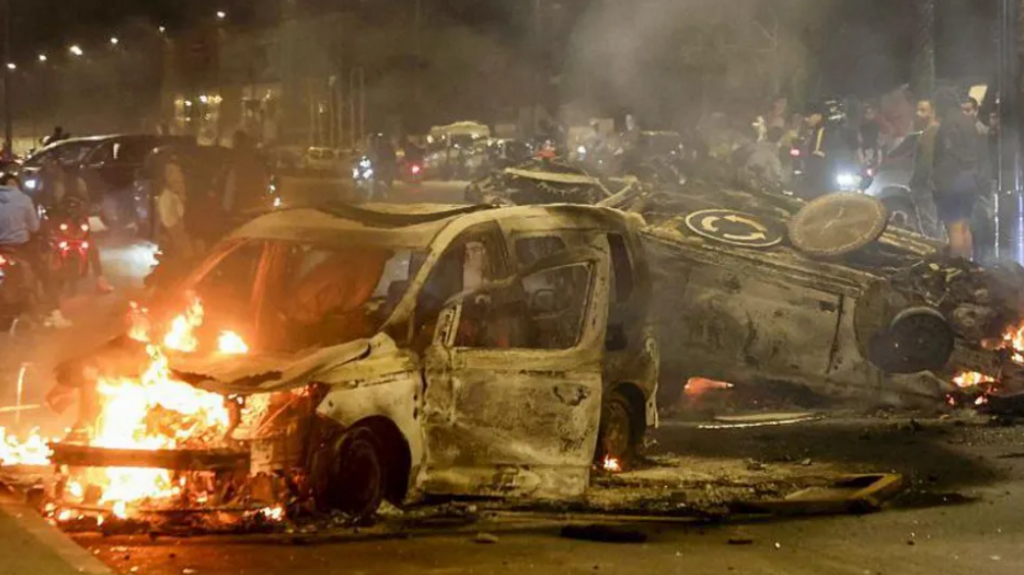Morocco has reported its first fatalities linked to the youth-led demonstrations that have swept the country since last weekend. State media confirmed that at least two people were killed in Lqliaa, near Agadir, after police opened fire to stop protesters from storming a police station on Wednesday night. Authorities said officers acted in “legitimate self-defence.”
The unrest, led largely by Generation Z under the banner GenZ 212 a nod to Morocco’s international dialing code erupted after the government prioritized building football stadiums for the 2030 FIFA World Cup while hospitals and schools remain underfunded.
A chant that has become a rallying cry for the movement is: “Stadiums are here, but where are the hospitals?” Protesters accuse the government of ignoring Morocco’s struggling public health system. One demonstrator in Oujda described local hospitals as “like a jail,” claiming patients must bribe security guards and nurses to access care.
Although the interior ministry earlier pledged to respect the right to peaceful protest, tensions have escalated. In Marrakesh, local media reported a police station was set on fire, while demonstrations also spread to Rabat, Casablanca, and Tangier.
The scale of the crackdown is significant. Interior ministry spokesman Rachid El Khalfi said 409 people have been arrested nationwide, with more than 260 police officers and 20 protesters injured. Dozens of police vehicles and private cars have also been destroyed.
Youth frustration is fueled by grim economic conditions. Official figures show unemployment at 12.8%, with the rate surging to 35.8% among young people and nearly 20% among university graduates.
Despite distancing themselves from violence, organisers of GenZ 212 continue to mobilize largely through social media. Their leaderless structure has made it difficult for authorities to negotiate directly, though Morocco’s governing coalition has expressed a willingness to open dialogue with youth groups.
The protests echo a wider wave of Gen Z-led uprisings seen this year in Nepal, Indonesia, the Philippines, and Madagascar countries where young people have been at the forefront of political change.
Whether Morocco’s government can calm unrest without deeper reforms remains uncertain. For now, the country faces one of its most significant youth-driven challenges in recent years.

